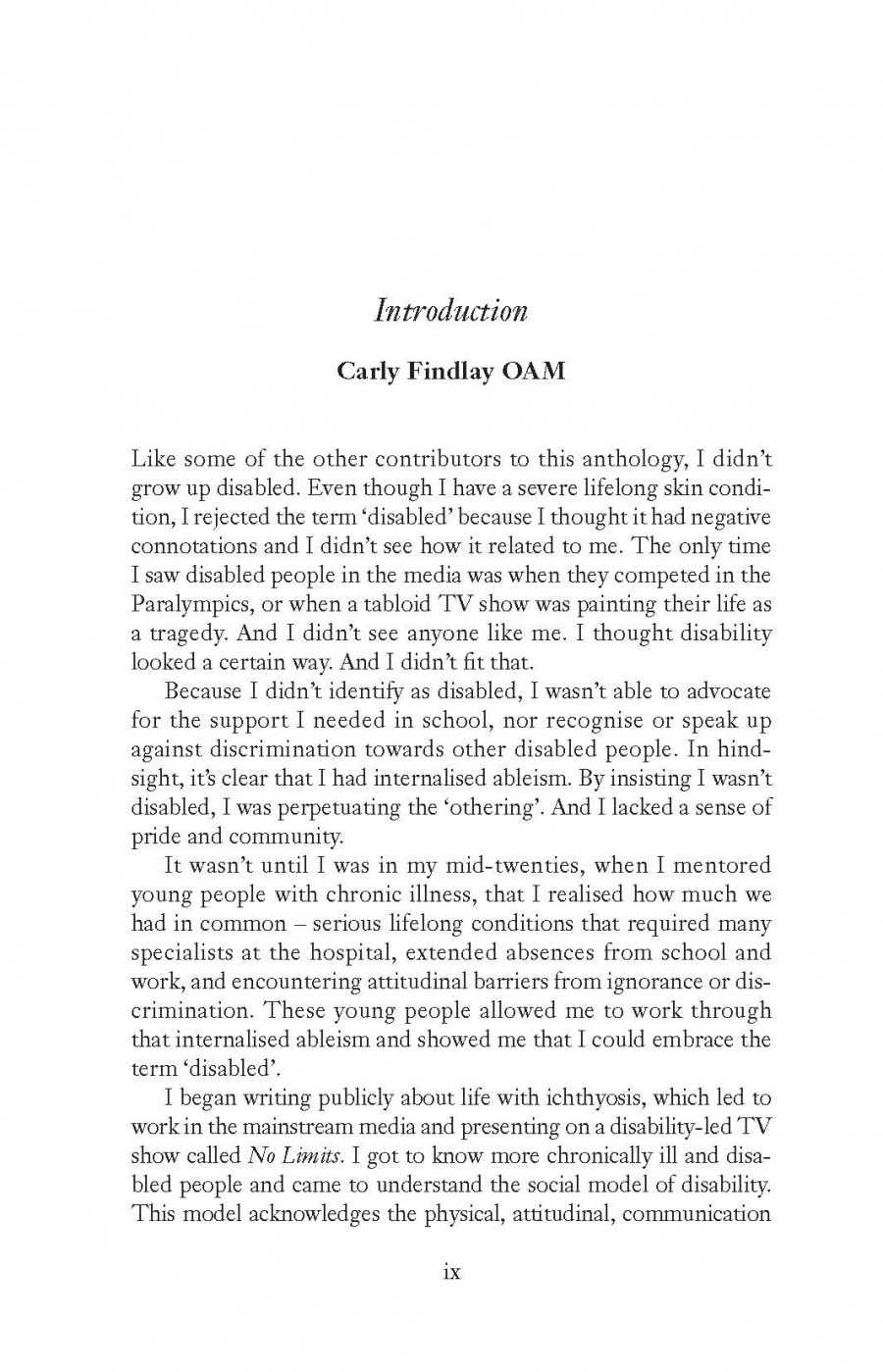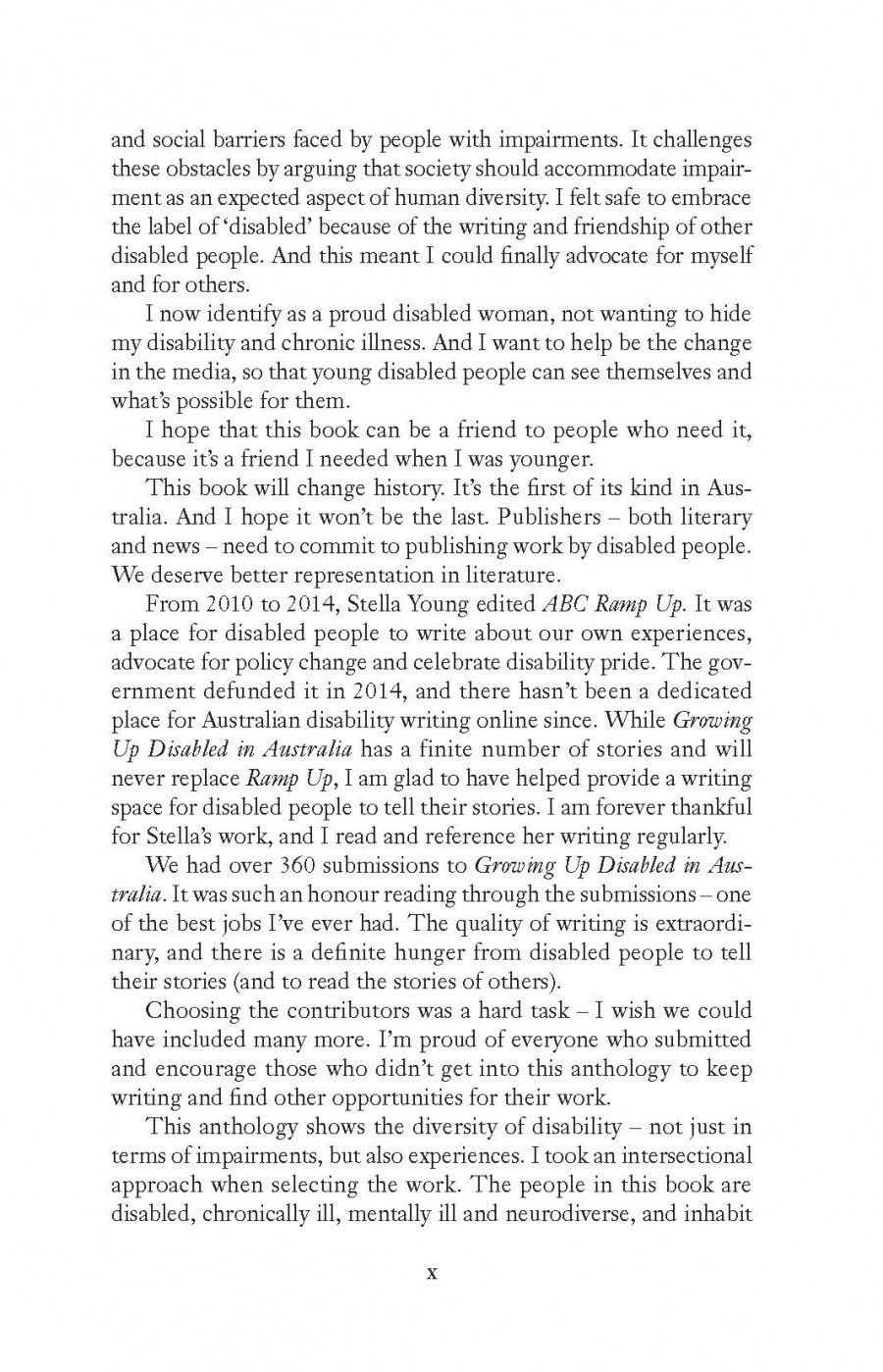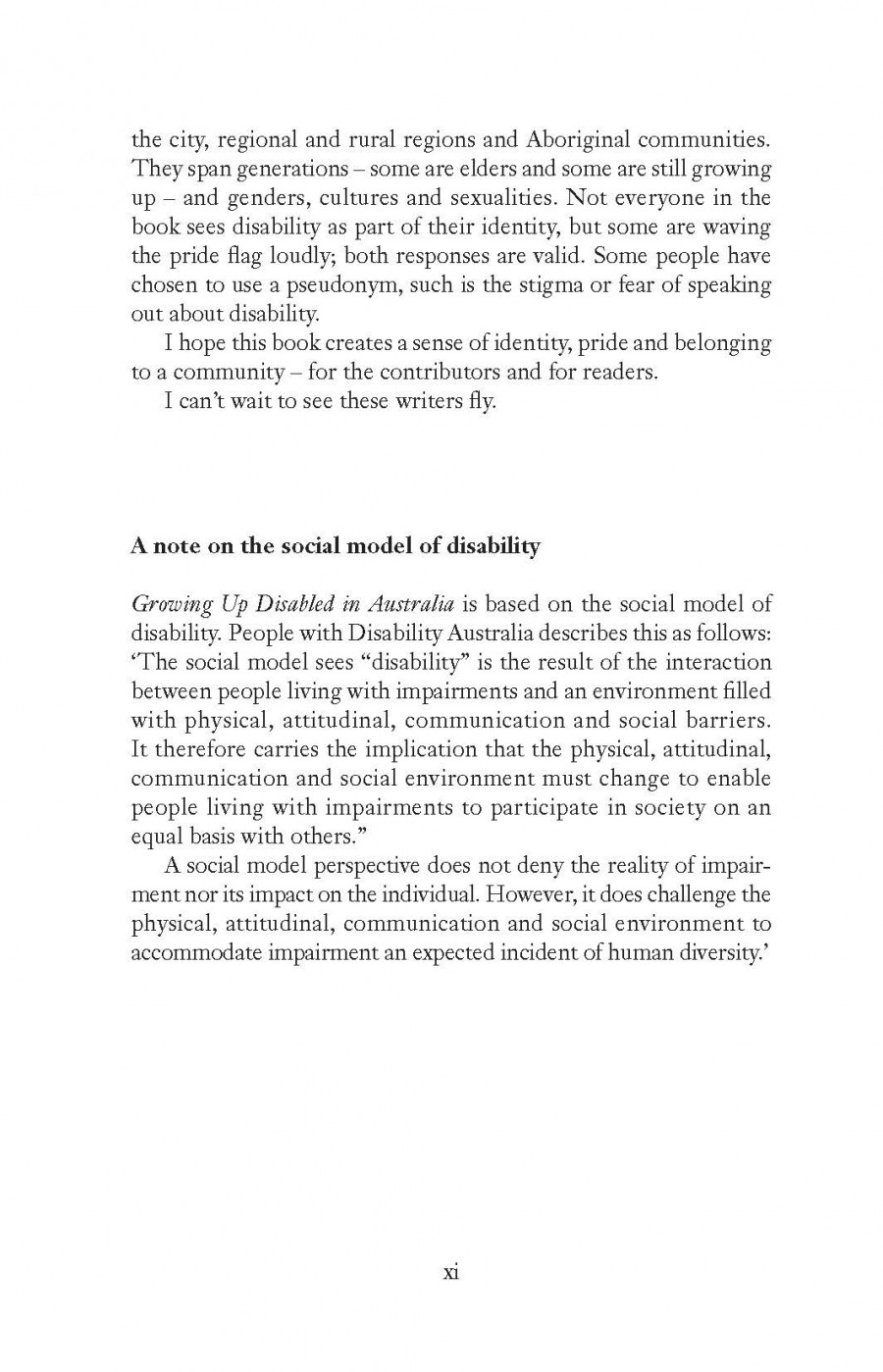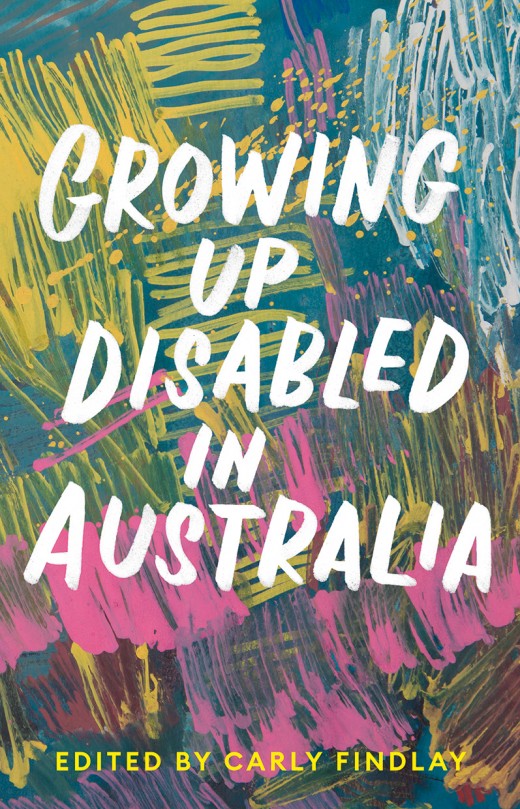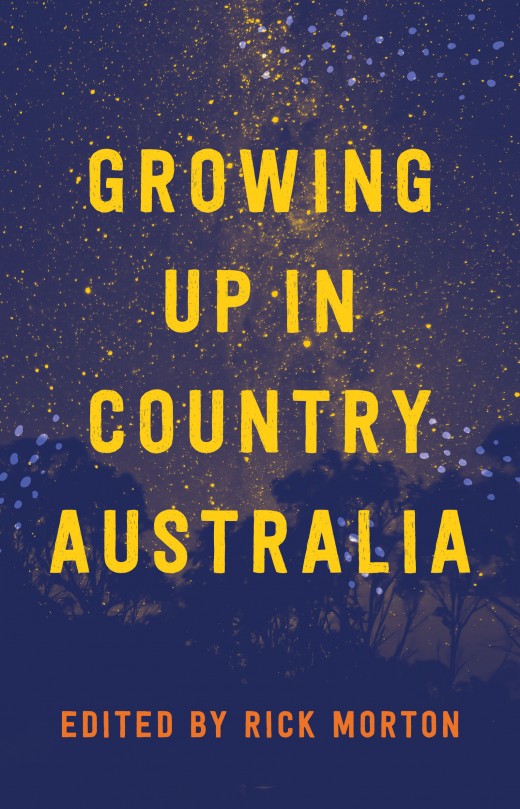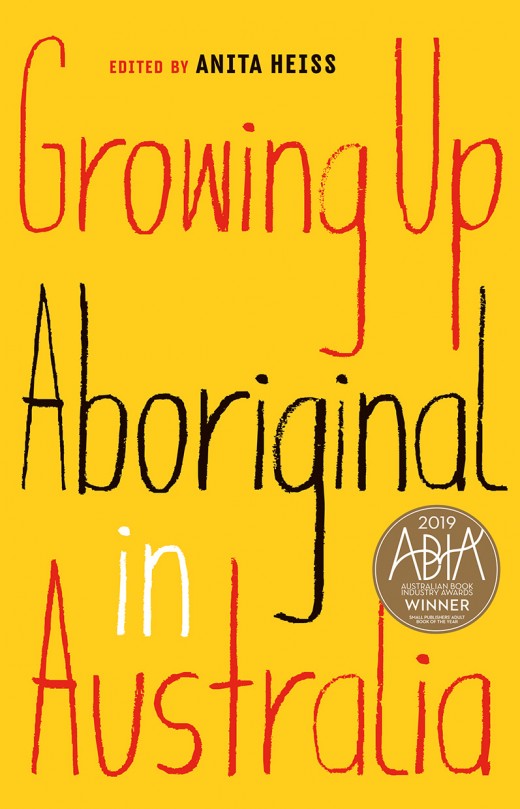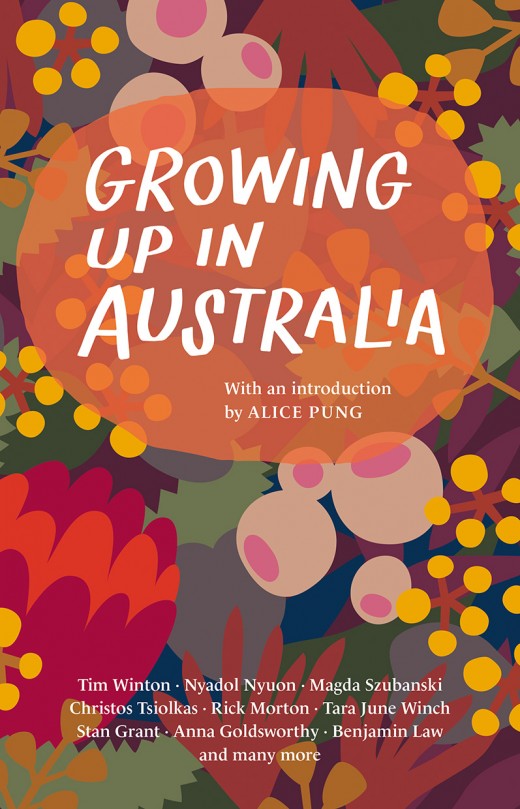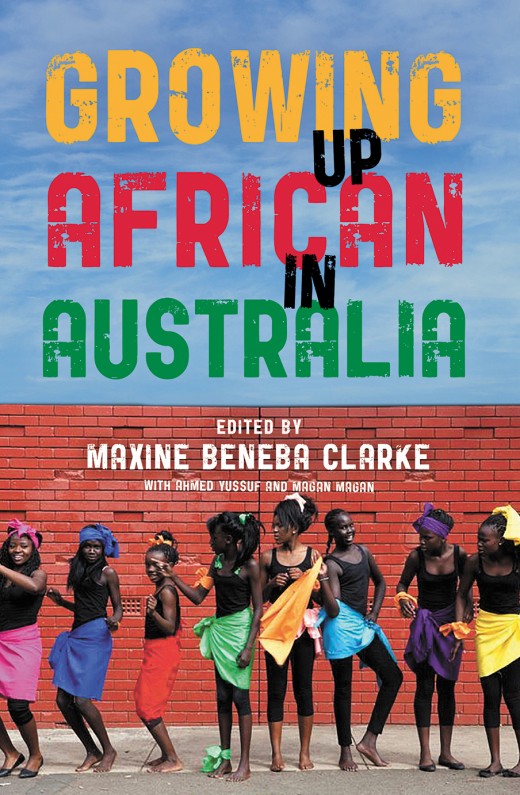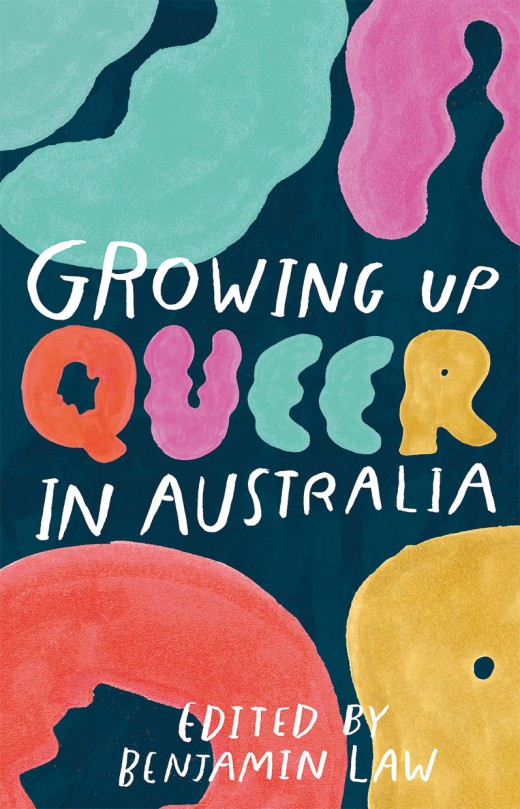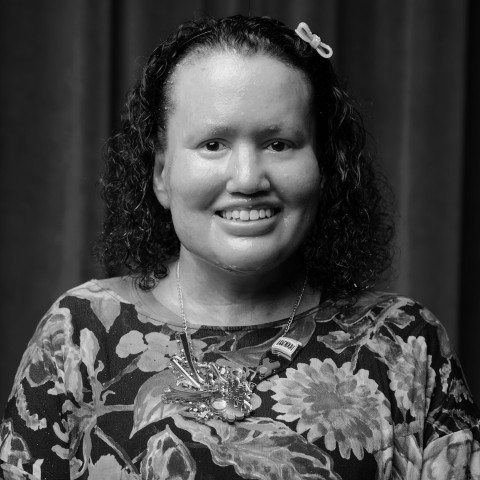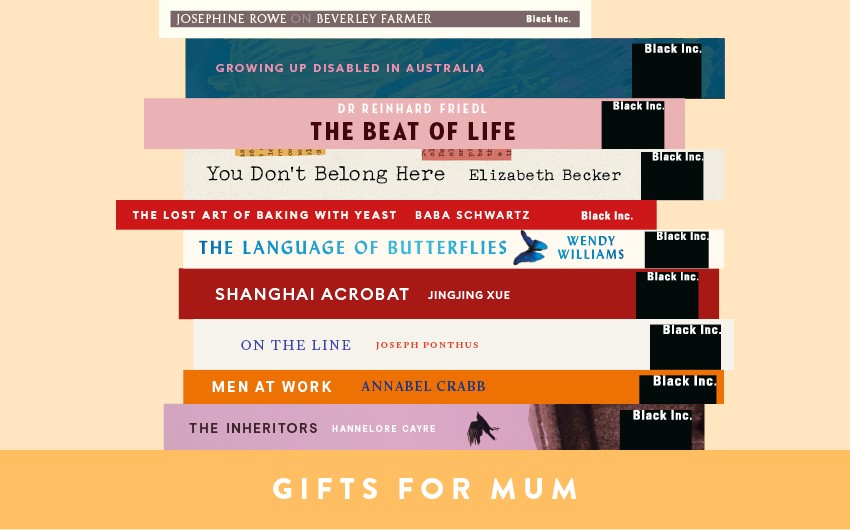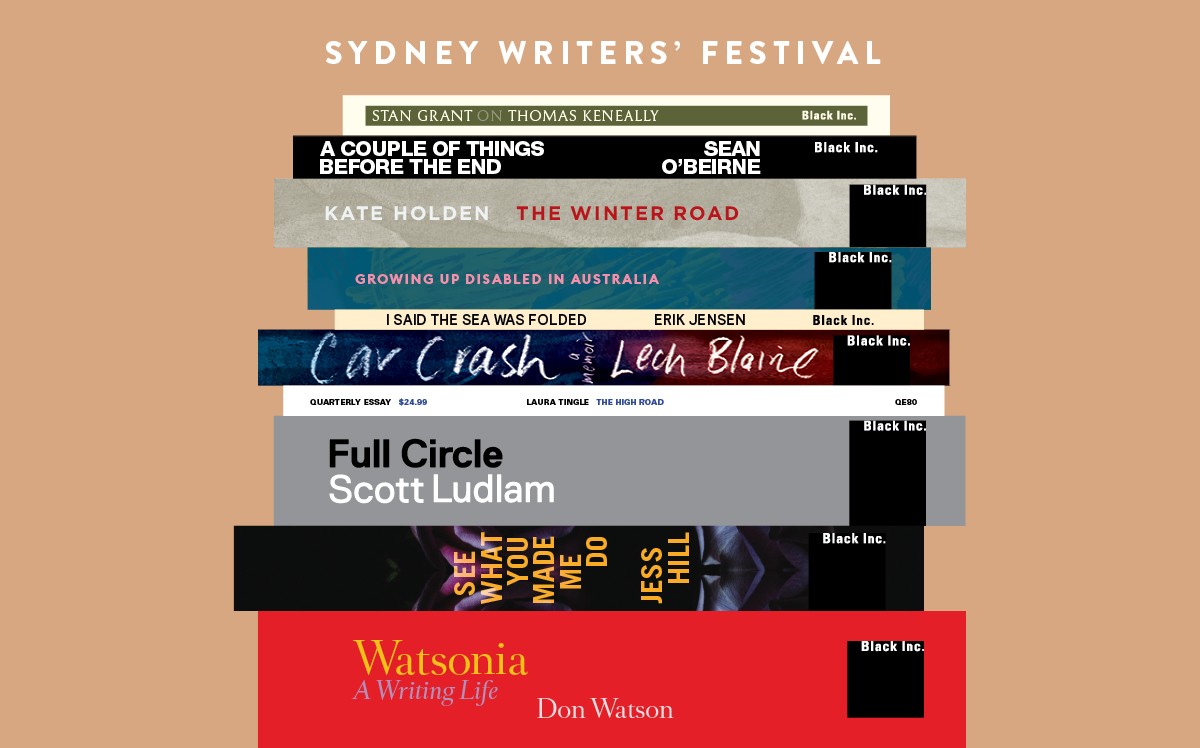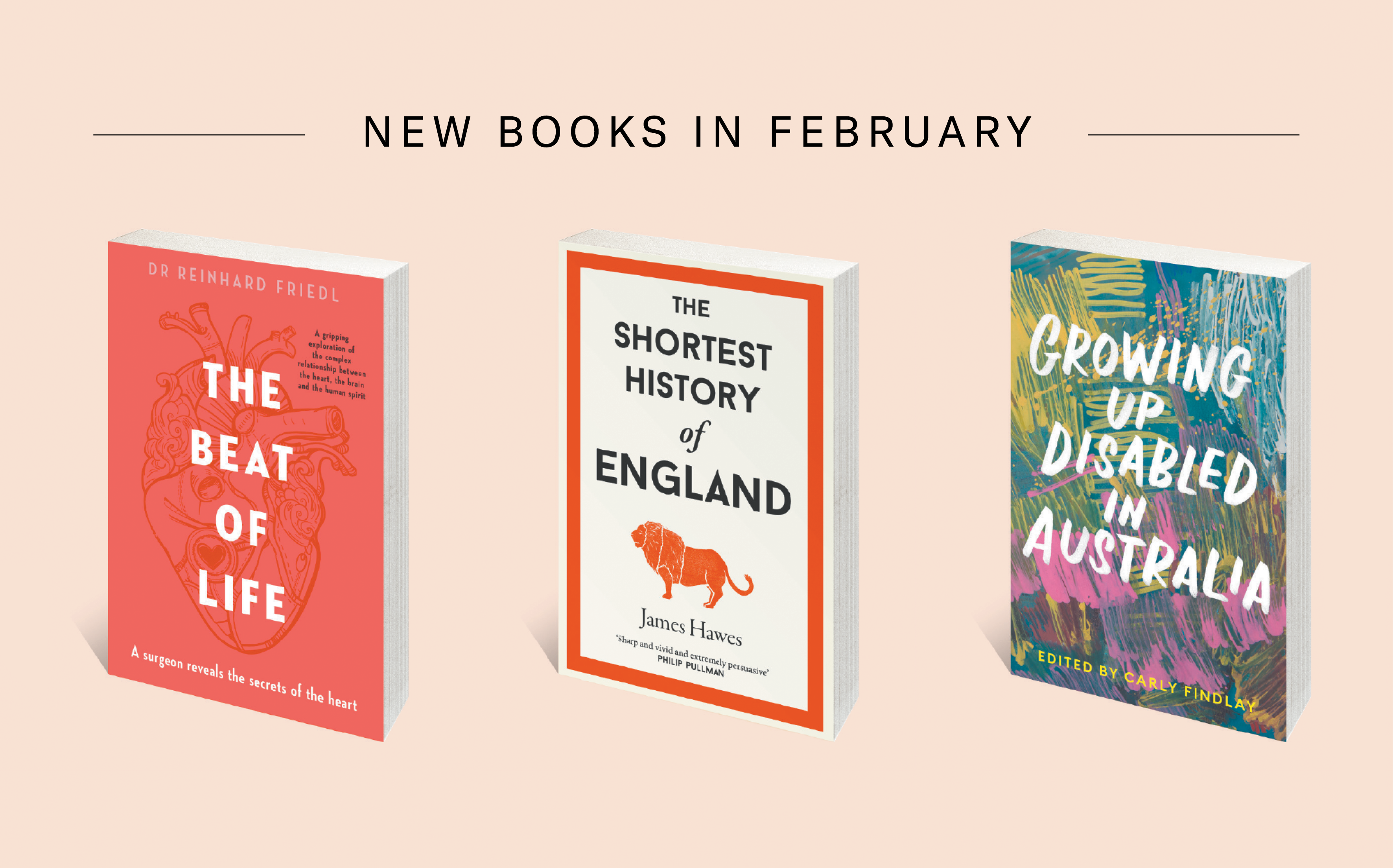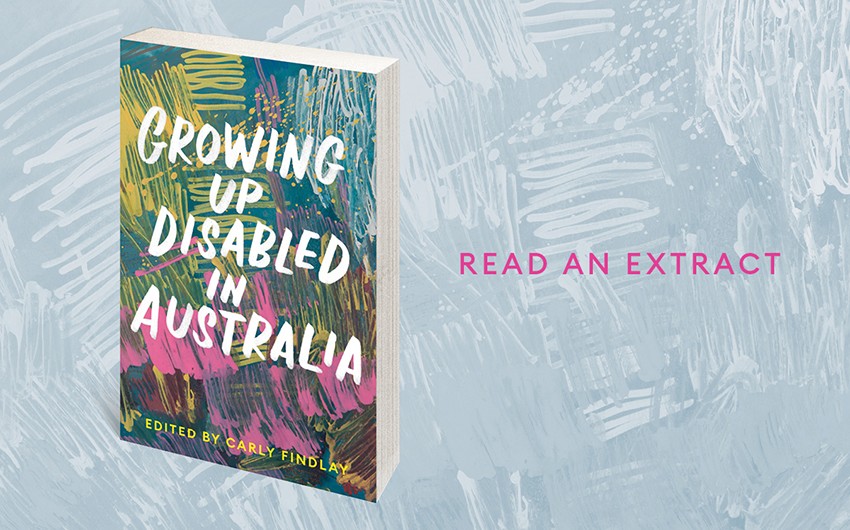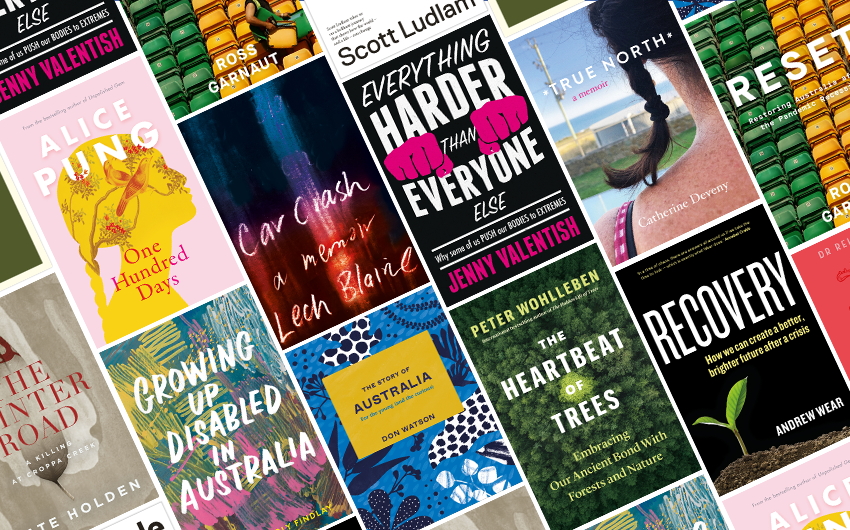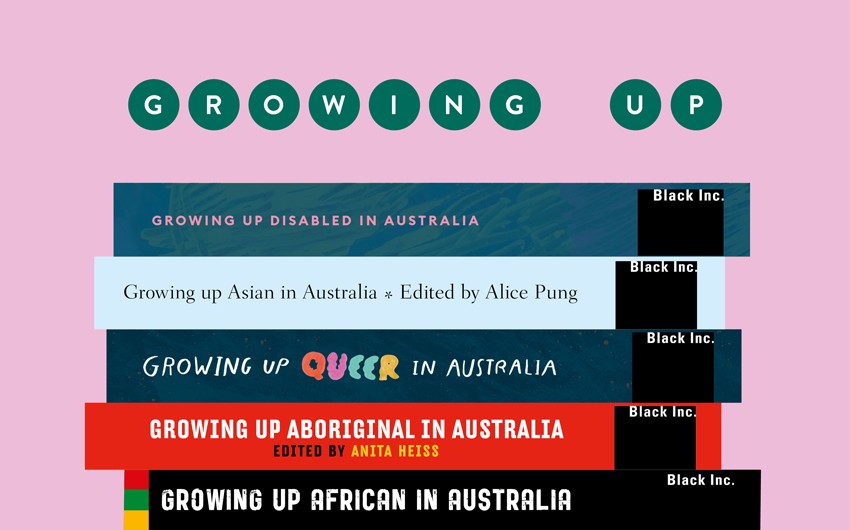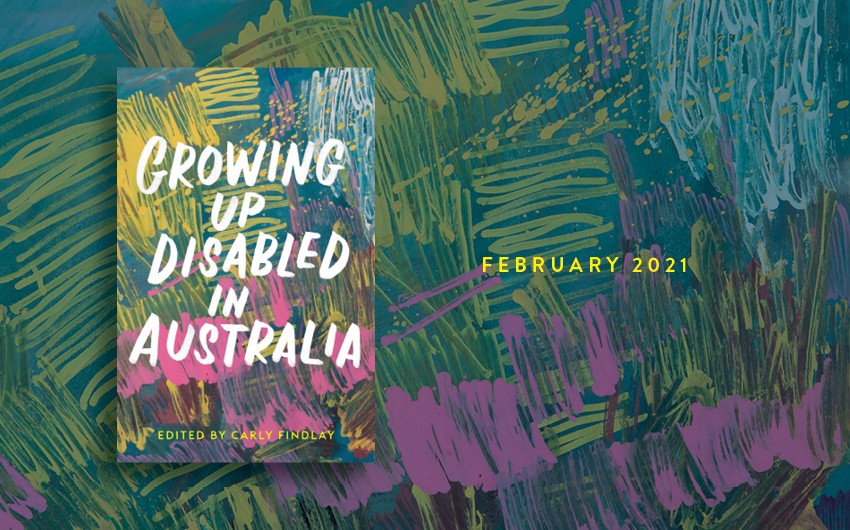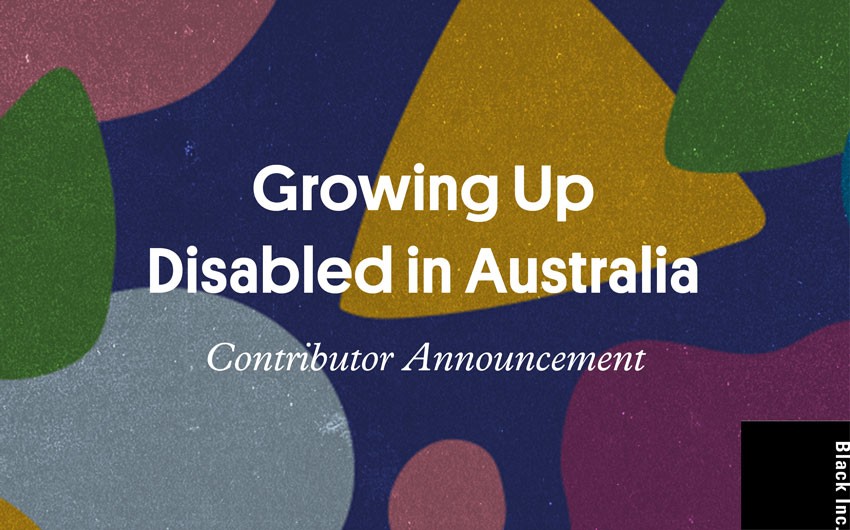Books > Imprint: Black Inc. > Anthologies & Collections
Growing Up Disabled in Australia
A rich collection of writing from those negotiating disability in their lives – a group whose voices are not heard often enough
‘My body and its place in the world seemed normal to me. Why wouldn’t it?’
‘I didn’t grow up disabled; I grew up with a problem. A problem that those around me wanted to fix.’
‘We have all felt that uncanny sensation that someone is watching us.’
‘The diagnosis helped but it didn’t fix everything.’
‘Don’t fear the labels.’
‘That identity, which I feared for so long, is now one of my greatest qualities.’
‘I had become disabled – not just by my disease, but by the way the world treated me. When I found that out, everything changed.’
One in five Australians has a disability. And disability presents itself in many ways. Yet disabled people are still underrepresented in the media and in literature. In Growing Up Disabled in Australia – compiled by writer and appearance activist Carly Findlay OAM – more than forty writers with a disability or chronic illness share their stories, in their own words. The result is illuminating.
Contributors include senator Jordon Steele-John, paralympian Isis Holt, Dion Beasley, Sam Drummond, Astrid Edwards, Sarah Firth, El Gibbs, Eliza Hull, Gayle Kennedy, Carly-Jay Metcalfe, Fiona Murphy, Jessica Walton and many more.
‘Grips the reader by the collar while pulling the rug out from under their feet. Like all good writing, these pieces not only put us in the writers’ shoes but up-end our ideas about where the disability lies.’ —Fiona Capp, The Sydney Morning Herald
Teaching notes available from Reading Australia
Audiobook

